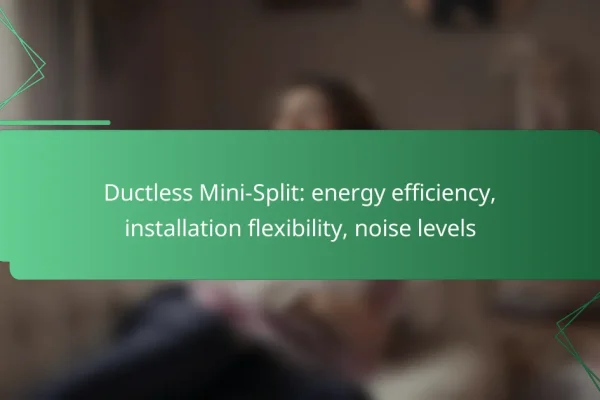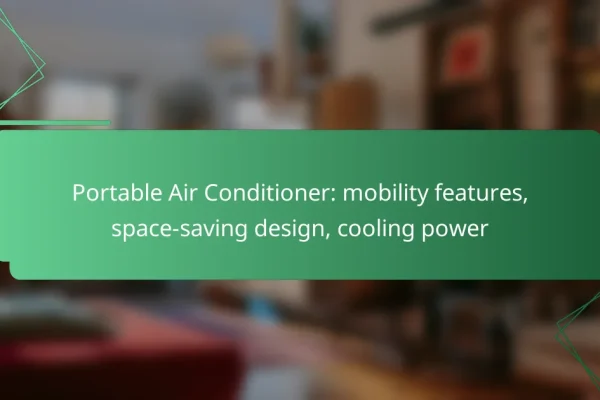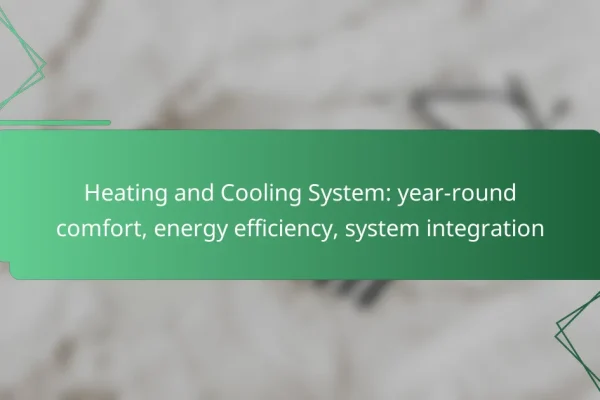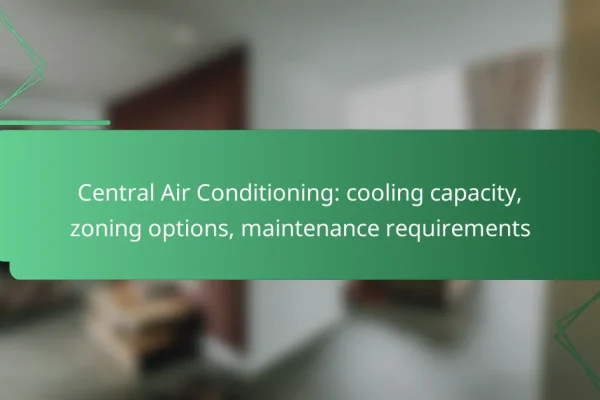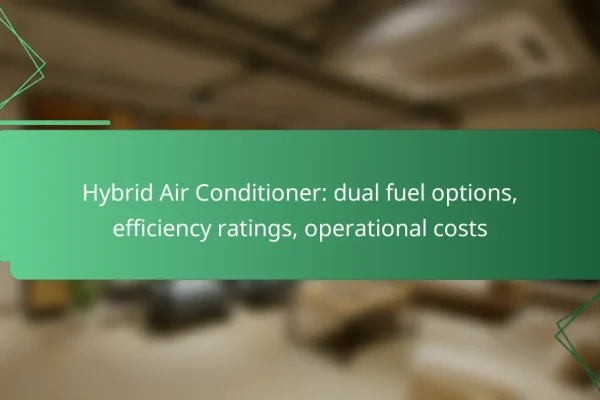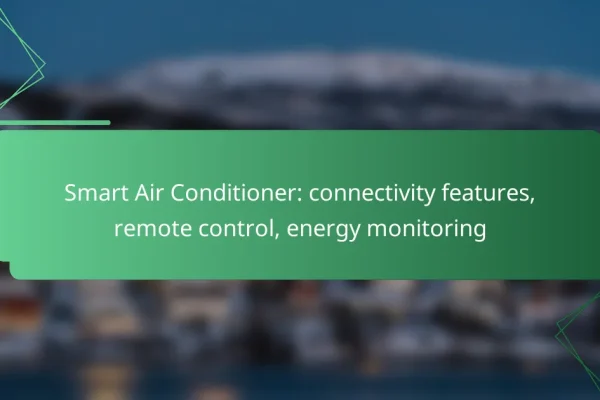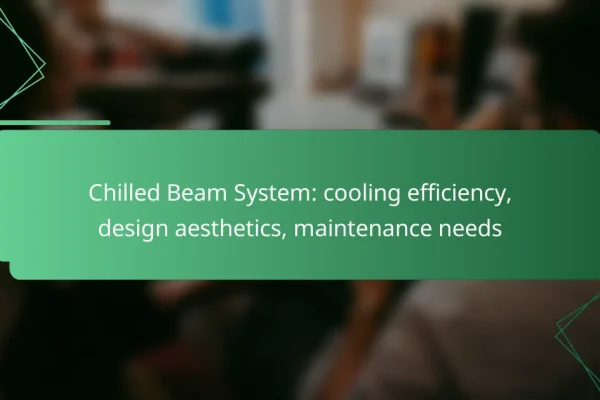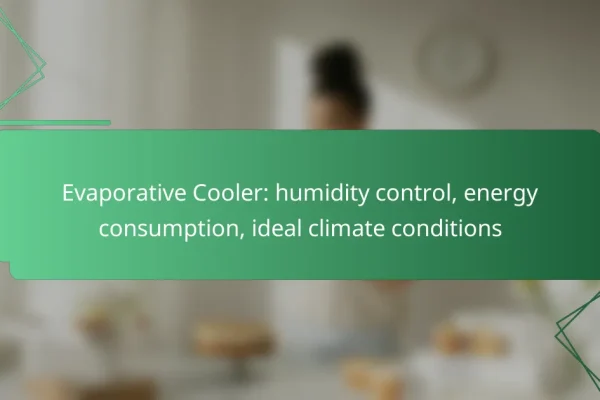What are the best air conditioning systems for homes in the UK?
The best air conditioning systems for homes in the UK include split system air conditioners, central air conditioning systems, portable air conditioners, window air conditioning units, and ductless mini-split systems. Each type has its own advantages and considerations, making it essential to choose based on your specific needs, space, and budget.
Split system air conditioners
Split system air conditioners consist of an indoor unit and an outdoor compressor, providing efficient cooling for individual rooms. They are ideal for homes where ductwork is not feasible and can be installed in various configurations to suit different spaces.
When selecting a split system, consider the cooling capacity, energy efficiency ratings, and the number of indoor units needed. Brands like Daikin and Mitsubishi are popular choices in the UK for their reliability and performance.
Central air conditioning systems
Central air conditioning systems cool an entire home through a network of ducts, making them suitable for larger properties. They provide consistent temperature control and can be integrated with heating systems for year-round comfort.
Installation costs can be significant, often requiring professional help, but they offer long-term energy savings. Ensure your system meets UK regulations for energy efficiency to avoid high running costs.
Portable air conditioners
Portable air conditioners are versatile units that can be moved from room to room, providing cooling where needed. They are particularly useful for renters or homes without existing ductwork.
While easy to set up, they can be less energy-efficient than other systems and may require a window for exhaust. Look for models with a high Energy Efficiency Ratio (EER) to minimize electricity costs.
Window air conditioning units
Window air conditioning units are compact systems designed to fit in a window frame, offering a cost-effective cooling solution for single rooms. They are straightforward to install and can be removed during colder months.
Consider the BTU rating to ensure adequate cooling for your room size. Brands like LG and Frigidaire offer reliable options, but be mindful of noise levels, which can vary significantly between models.
Ductless mini-split systems
Ductless mini-split systems are similar to split systems but do not require ductwork, making them ideal for homes without existing ducts. They consist of an outdoor compressor and multiple indoor units, allowing for zoned cooling.
These systems are energy-efficient and provide flexibility in temperature control for different areas of the home. Installation can be more straightforward than central systems, but upfront costs may be higher, so consider your budget and long-term savings potential.
How to choose the right air conditioning system?
Choosing the right air conditioning system involves assessing your home’s specific needs, including size, energy efficiency, installation requirements, and maintenance. A well-suited system can enhance comfort while minimizing energy costs.
Assess your home’s size and layout
The size and layout of your home are crucial in determining the appropriate air conditioning system. Measure the square footage of each room and consider the ceiling height, as these factors influence the cooling capacity required.
A general rule is that you need about 20 BTUs (British Thermal Units) per square foot of living space. For example, a 1,500 square foot home may require a system with around 30,000 BTUs for effective cooling.
Consider energy efficiency ratings
Energy efficiency ratings, such as SEER (Seasonal Energy Efficiency Ratio), indicate how efficiently an air conditioning unit operates. Higher SEER ratings typically mean lower energy costs and a smaller environmental impact.
Look for systems with a SEER rating of at least 14 for optimal efficiency. While these units may have a higher upfront cost, they can save you money on energy bills over time.
Evaluate installation requirements
Installation requirements can vary significantly between different air conditioning systems. Central air systems often require ductwork, while ductless mini-splits can be easier to install in homes without existing ducts.
Consider the cost and complexity of installation when choosing a system. Hiring a qualified technician is essential to ensure proper setup and compliance with local building codes.
Review maintenance needs
<pRegular maintenance is vital for keeping your air conditioning system running efficiently. Most systems require filter changes every 1-3 months, along with annual professional inspections to ensure optimal performance.
Neglecting maintenance can lead to decreased efficiency and costly repairs. Create a maintenance schedule to keep your system in top shape and extend its lifespan.
What are the costs of air conditioning systems in the UK?
The costs of air conditioning systems in the UK can vary significantly based on the type, size, and efficiency of the unit. Generally, you can expect to spend anywhere from a few hundred to several thousand pounds when considering purchase, installation, and ongoing expenses.
Initial purchase and installation costs
The initial purchase price of an air conditioning system in the UK typically ranges from £300 for basic portable units to over £2,500 for high-end, multi-split systems. Installation costs can add another £500 to £1,500, depending on the complexity of the setup and the type of system chosen.
When selecting a unit, consider energy efficiency ratings, as higher-rated models may have a higher upfront cost but can save you money in the long run through reduced energy consumption.
Long-term energy costs
Long-term energy costs are a crucial factor in the overall expense of air conditioning systems. On average, running an air conditioning unit can cost between £100 and £300 annually, depending on usage and energy efficiency. Systems with higher SEER (Seasonal Energy Efficiency Ratio) ratings tend to consume less electricity, leading to lower bills.
To minimize energy costs, consider using programmable thermostats and regular maintenance to ensure the system operates efficiently.
Maintenance and repair costs
Maintenance and repair costs for air conditioning systems in the UK can vary, but regular servicing is essential for optimal performance. Annual maintenance typically costs around £70 to £150, which includes cleaning filters and checking refrigerant levels.
Be prepared for potential repair costs, which can range from £100 for minor issues to over £500 for significant repairs. Investing in a maintenance plan can help prevent unexpected expenses and extend the lifespan of your system.
What are the benefits of energy-efficient air conditioning systems?
Energy-efficient air conditioning systems provide significant advantages, including cost savings, reduced environmental impact, and enhanced indoor air quality. These systems are designed to use less energy while maintaining optimal comfort levels, making them a smart choice for both homeowners and businesses.
Lower energy bills
One of the most immediate benefits of energy-efficient air conditioning systems is the reduction in energy bills. By consuming less electricity, these systems can lower monthly utility costs by 20-50% compared to standard models. This savings can add up significantly over time, making the initial investment worthwhile.
When selecting an energy-efficient unit, look for models with a high Seasonal Energy Efficiency Ratio (SEER) rating. A SEER rating of 14 or higher is generally considered efficient, and many newer models exceed this threshold.
Environmental impact reduction
Energy-efficient air conditioning systems contribute to a lower carbon footprint by using less energy, which in turn reduces greenhouse gas emissions. This is particularly important as many regions are striving to meet stricter environmental regulations and sustainability goals.
Additionally, these systems often use refrigerants that have a lower global warming potential (GWP), further minimizing their environmental impact. Choosing an energy-efficient model can be a proactive step towards supporting environmental conservation efforts.
Improved indoor air quality
Energy-efficient air conditioning systems often come equipped with advanced filtration systems that help improve indoor air quality. These filters can capture dust, allergens, and pollutants, leading to a healthier living environment.
Regular maintenance, such as changing filters and cleaning ducts, is essential to maximize air quality benefits. Consider using HEPA filters for optimal performance, as they can trap smaller particles that standard filters might miss.
What are the common air conditioning system brands in the UK?
In the UK, several air conditioning system brands are recognized for their reliability and efficiency. Key players include Daikin, Fujitsu, LG, and Mitsubishi Electric, each offering unique features and benefits to suit various needs.
Daikin
Daikin is known for its advanced technology and energy-efficient systems. Their units often feature inverter technology, which adjusts the compressor speed to maintain a consistent temperature while saving energy.
When considering Daikin, look for models that offer smart controls and high seasonal energy efficiency ratings (SEER). These features can lead to lower energy bills and a more comfortable indoor environment.
Fujitsu
Fujitsu air conditioning systems are praised for their quiet operation and compact designs. They provide a range of options, including wall-mounted and ducted systems, making them versatile for different spaces.
It’s beneficial to evaluate Fujitsu’s multi-split systems, which allow multiple indoor units to connect to a single outdoor unit. This can be a cost-effective solution for cooling multiple rooms.
LG
LG offers innovative air conditioning solutions with a focus on smart technology and user-friendly interfaces. Their systems often include features like Wi-Fi connectivity, allowing users to control their units remotely.
Consider LG’s dual inverter technology, which enhances energy efficiency and reduces noise levels. This can be particularly advantageous in residential settings where quiet operation is essential.
Mitsubishi Electric
Mitsubishi Electric is renowned for its robust and reliable air conditioning systems. Their products are designed to perform well in various climates, making them suitable for both residential and commercial applications.
When selecting Mitsubishi Electric systems, pay attention to their extensive warranty options and service support. These factors can provide peace of mind and long-term value for your investment.








